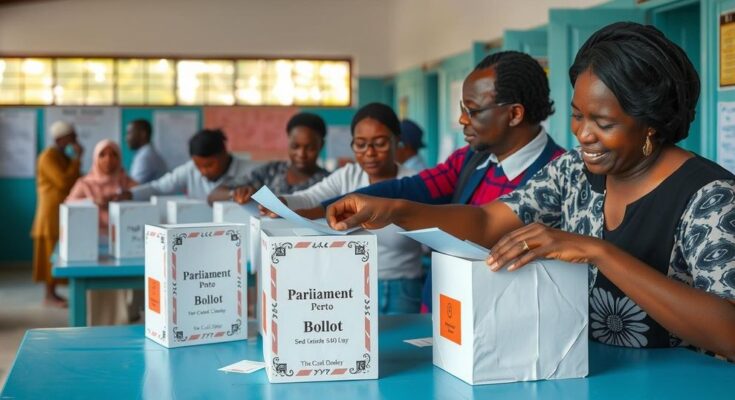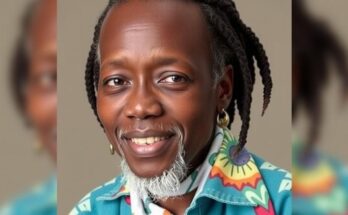Voters in Comoros are participating in parliamentary elections for the 33-seat assembly amidst claims of electoral irregularities following the controversial re-election of President Azali Assoumani. Approximately 338,000 registered voters are heading to the polls, while opposition parties are divided on the strategy of boycotting the elections. Results are expected by Friday.
On Sunday, voters in Comoros took to the polls to elect representatives for the 33-seat parliament of the Indian Ocean archipelago. This election follows the controversial re-election of President Azali Assoumani, which the opposition claims was rife with irregularities. Despite these allegations, the ruling party officials have categorically denied any wrongdoing. Approximately 338,000 citizens are registered to participate in the electoral process, as polling stations opened early in the day. Historically, the last parliamentary elections were held in January 2020, and this election features nearly 100 candidates sanctioned by the Supreme Court.
Assoumani’s tenure has been marred by accusations of authoritarianism, with fears that he intends to position his eldest son, Nour El-Fath, as his successor following the end of his term in 2029. Since acquiring power through a coup in 1999, Assoumani has won three elections, but recent developments have seen him bestow significant governmental powers on his son starting in 2024. Several opposition factions, such as Juwa, which is led by former President Ahmed Abdallah Sambi, who is currently serving a life sentence, have urged a boycott of the elections. However, other opposition leaders have dismissed this strategy.
One such leader, Hamidou Karihila of the opposition Hope of the Comoros party, asserted, “The Azali regime is weakened…by participating in these elections we are contributing to further exposing the flaws in its system and accelerating its inevitable fall.” The announcement of results is anticipated by Friday, following a day of significant political engagement among the electorate.
The Comoros is a small archipelago in the Indian Ocean that has experienced political instability since attaining independence. President Azali Assoumani has played a prominent role in the nation’s politics, having established himself in power since a coup in 1999. Throughout his tenure, he has navigated through various elections amidst allegations of electoral malpractice and authoritarian governance. Recent shifts in power dynamics, especially concerning his son’s increased authority, have raised alarms among opposition parties, leading to divisive strategies such as election boycotts.
The parliamentary elections in Comoros represent a critical moment in the nation’s political landscape, reflecting long-standing tensions between the ruling party and the opposition. Despite accusations of electoral malpractices and authoritarian tendencies, voter participation remains robust. The results of this election may provide insights into the public’s sentiment toward Assoumani’s leadership and the opposition’s influence, further shaping the future of governance in the Comoros.
Original Source: www.lismorecitynews.com.au




